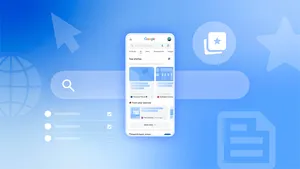Our testimony to the California Senate Judiciary Committee on the California Journalism Preservation Act
Editor’s Note: Delivered to the California Senate Judiciary Committee on Tuesday, June 25, 2024.
Good afternoon, Chair Umberg, Members of the Committee, and Assemblymember Wicks. Thank you for the opportunity to be here today.
My name is Jaffer Zaidi, and I’m Google’s Global Vice President of News Partnerships.
Since 1998, our mission has been to make the world’s information universally accessible and useful. In service of that mission, every day, Search continues to send billions of visits to publisher websites, and that includes news publishers of all sizes.
Today, we’re also one of the largest supporters of journalism in the world. That includes paid licensing programs through our News Showcase product, and the Google News Initiative, which provides tools, training, and funding programs specifically focused on local, under-represented, and community-based publications. It’s through these programs that we’re proud to support over 200 news organizations in California.
To be clear, the act of surfacing links to news content is not commercially lucrative for Google — as we rarely show any advertising against news searches. We make these investments because connecting our users to information and news about the world around them is core to our mission. And that’s why we share the goal of strengthening local journalism in California.
However, while well intentioned, we strongly believe that the California Journalism Preservation Act takes the wrong approach, and will certainly have damaging consequences.
- First, it’s built upon the flawed premise that platforms somehow appropriate news content and profit from it without compensating news businesses. That is not the way that Search works. All website owners — including news organizations and publishers — decide whether we are able to link to their site, and what (if anything) can be shown in addition to that.
- The bill would also break the foundational principles of the open internet, forcing platforms to pay publishers for sending valuable free traffic to them, which they choose to receive. It then compels platforms to show that content — a profoundly unconstitutional and problematic notion.
- As many others have pointed out, the bill would also heavily fund interests that run counter to supporting actual local journalism here in California. That includes out-of-state private equity firms and hedge funds with histories of stripping newsrooms for parts, as well as global and national conglomerate publishers.
- It also has no way of blocking misinformation-oriented actors from accessing funding.
- Meanwhile, it puts the full burden of support on one or two companies — while shielding many large platforms who also link to California news publishers.
- Frameworks like this have led some platforms to remove links to news publishers altogether in other markets, delivering a devastating blow to smaller publishers in particular.
There needs to be a better path.
We have shared our own proposal that would meaningfully increase our contributions, delivered through targeted programs to ensure support for truly California-based journalism. It also calls on a broad range of stakeholders to contribute — which should be a prerequisite for any solution. We hope this can serve as the basis for a workable path forward, and remain committed to working towards that.
I’d like to close by expressing my deep appreciation to Chair Umberg, Assemblymember Wicks, Senator Glazer and all of you for your efforts to work with and listen to stakeholders.
Thank you for your time, and I look forward to your questions.






